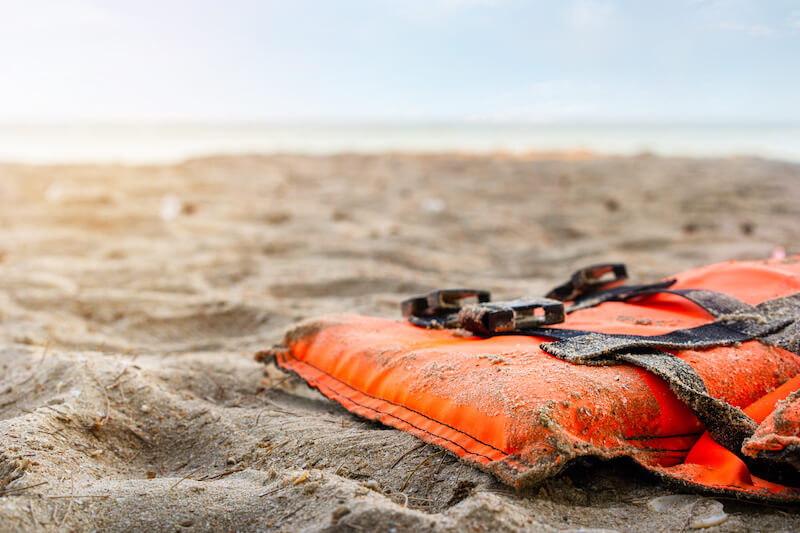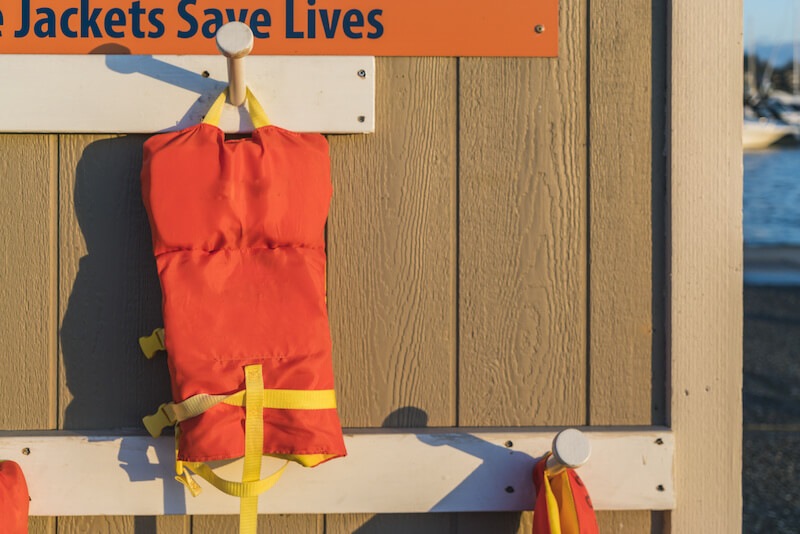
Whether you are deep-sea fishing or simply enjoying a lazy afternoon on the lake, the state of Texas offers something for every boat and watercraft enthusiast. Unfortunately, there are dangers to boating—in 2008 alone, the Texas Parks and Wildlife Department reported 271 boating accidents in Texas. These accidents led to numerous injuries and over 60 fatalities.
If you or a loved one is injured while on a vessel or personal watercraft, you may be able to file a claim against the negligent party. Boating accidents can be serious, and you may require extensive rehabilitation and long-term care to recover from your injuries. The experienced personal injury attorneys at the Hernandez Law Group, P.C. will help you recover the compensation you need to get your life back on track after a devastating boat, ship, or personal watercraft accident.
Why Choose Our Texas Maritime Lawyers?
The Hernandez Law Group, P.C. is no stranger to handling maritime accidents. Since our founding in 1999, we have helped thousands of clients recover the compensation they deserve. When you are injured in a maritime accident caused by another’s negligence, you need a competent maritime lawyer to help you navigate the complex legal system and get the compensation you deserve.
Our attorneys have crushed the competition and ensured that every one of our clients has their voices heard. With an over 98% success rate, it is no wonder that more and more people are turning to our attorneys while on the road to recovery!
Common Causes of Boating Accidents

Any watercraft can be dangerous, but the most common boating accidents in Texas involve recreational boats and watercraft such as motorboats, jet skis, and water skis. Injuries and accidents while boating can occur in a variety of ways, including:
- Boats capsizing
- Boats sinking or flooding
- Passengers not wearing life vests
- Passengers falling overboard
- Boats colliding with other boats
- Boats colliding with other structures, such as docks, buoys, or piers
- Vessels catching fire
- Explosions on vessels
While a boating accident can occur at any time, the majority of these accidents are the result of driver error or boating under the influence of alcohol or drugs. Eighty-five percent of all fatalities on boats and ships occur simply because the operators were inexperienced and had not completed a boating safety education course. Negligent vessel operators may drive recklessly, operate at unsafe speeds, or lack the experience to navigate during poor weather conditions. When alcohol or drugs are thrown into the mix, the result can be deadly.
Understanding Your Rights After a Boating Accident;
If you’re injured aboard a seafaring vessel, you deserve to receive full compensation for your injuries and other damages. However, it may be difficult to do so if the vessel’s owner or charterer claims protection under the Shipowners Limitation of Liability Act (46 U.S.C. chapter 30501 et seq.).
The Shipowner’s Limitation of Liability Act
This provision limits the vessel owner’s liability to the amount that the vessel is worth post-accident. In other words, if the vessel is found to be worth $50,000 after the accident, the shipowner cannot owe more than $50,000 in damages.
For shipowners to claim the protection, their vessel must have been in US waters at the time of the accident. Furthermore, the vessel owner or charterer must prove that they had no way of knowing that the circumstances that caused the accident would occur. In other words, if an unsafe condition onboard was caused by negligent action, the vessel owner would be protected under the Limitation of Liability Act only if they can prove that they had no knowledge or privity to the condition.
Exceptions For Personal Injuries/Death
However, the Shipowner’s Limitation of Liability Act does not define the full limit for injuries and deaths aboard certain seafaring vessels. If the post-wreck value of the vessel is not sufficient to cover the cost of all personal injuries and wrongful deaths aboard the vessel, the calculation is modified to 420 times the tonnage of the vessel. For example, if the ship has a gross tonnage of 30,000, the limitation of liability would increase to $12.6 million.
This law does not apply to certain seafaring vessels, such as:
- Pleasure yachts
- Towboats
- Tank vessels
- Fishing vessels
- Canal boats
- Barges
Personal Injuries on Cruise Ships
The same laws and regulations apply if you’re hurt while aboard a cruise ship. However, it’s important to note that cruise lines almost always require that you file a claim in Miami, as this is where most of their headquarters are located. This requirement will stand even if you’ve never stepped foot in Miami or anywhere else in Florida before, during, or after the cruise. Read the cruise line’s policies before you file a claim in any state other than Florida.
Here are three major cruise lines that require all personal injury claims to be submitted in Miami:
- Carnival
- Royal Caribbean
- Norwegian Cruise Lines
Understanding the Jones Act

Federal Statute 46 U.S.C. section 883—better known as The Jones Act—made it easier for seamen to gain compensation for their work injuries. This statute allowed workers aboard vessels to be covered under the Federal Employers Liability Act (FELA), which previously applied only to railroad workers.
Under the Jones Act, the employer of workers on a vessel can be held liable for injuries arising due to negligence. The employer may be held at fault for injuries caused entirely or partially by the negligence of themselves, officers, agents, or other employees. This may include faulty equipment or unsafe conditions on board the ship or boat. Even if the crew member is between shifts (but aboard the vessel) when they get injured, the employer may still be found liable.
It’s important to note that not all crew members may be eligible for injury compensation under the Jones Act. Ineligible persons may include:
- Employees engaged in a joint venture: If the crew member stands to gain from the venture (rather than being paid a set amount as a crew member), the master of the vessel will not be responsible for their injuries.
- Volunteer yacht crew members: If a crew member on a yacht is a volunteer and unpaid, the Jones Act does not apply. The act does apply, however, to paid crew members aboard a pleasure yacht.
What Damages Can I Recover Under the Jones Act?
Under the Jones Act, a seamen or their family may be able to receive compensation for the following damages:
- Loss of income
- Medical expenses
- Loss of future wages
- Funeral expenses
- Loss of fringe benefits
- Pain and suffering
- Mental anguish
- Loss of consortium
These damages may apply to personal injury cases, wrongful death cases, or survival actions relating to crew members aboard vessels.
Understanding the Texas Water Safety Act
It’s important to note that the Shipowners Limitation of Liability Act, the Jones Act, and certain other provisions set forth by US maritime laws only apply if you are more than 12 miles away from the United States coast. Within those 12 nautical miles, Texas civil and criminal laws will apply instead.
Just as with injuries on land, you can generally gain compensation for injuries that occur due to the negligence, gross negligence, recklessness, or intentional actions of another—especially if those actions directly violate Texas laws. The Texas Water Safety Act (specifically, the Texas Parks and Wildlife Code Title 4, Chapter 31, Subchapter D) defines these actions on the water as reckless or negligent:
- Speeding
- The creation of hazardous wake or wash
- Encircling another watercraft or swimmer
- Interfering with markers or ramps placed by the US or Texas governments
- Obstructing the passage of another vessel or watercraft
- The operation of a boat in a restricted area
- The operation of a vessel in an area set aside for scuba diving/snorkeling
- The operation of a watercraft or vessel between sunset and sunrise
- The operation of a boat or ship while intoxicated or under the influence of drugs
- Exceptions to most of these rules exist if you are attempting to rescue a downed, fallen, or drowning person.
Understanding the Suits in Admiralty Act

If you are injured by or while aboard a vessel owned by the US Government, you may sue for damages under the Suits in Admiralty Act (SIAA). This is the only exception to the US Government’s immunity against lawsuits. The lawsuit would proceed the same as if you were suing a private party. Common defendants in SIAA case include:
- The US Navy
- The US Coast Guard
- The US Army Corps of Engineers
- The National Marine Fisheries Service
- The National Oceanic and Atmospheric Administration
Contact Our Texas Maritime Accident Injury Lawyers
If you or a loved one is injured on/by a vessel or watercraft, contact the personal injury lawyers at the Hernandez Law Group, P.C. Juan Hernandez is board-certified in personal injury law by the State Bar of Texas—a certification that 98% of attorneys in Texas have neglected to receive. He has experience litigating a wide variety of personal injury cases including boating accidents. Contact us today to schedule a free no-obligation consultation with Juan Hernandez and the rest of our attorneys in Dallas, Amarillo, and Abilene.
Maritime Accidents FAQS
Immediately after a boating accident, you will need to do the following:
– Call For Help: You will either need to contact the local authorities or the Coast Guard depending on where the boating accident took place.
– Obtain Medical Attention: Seek immediate medical attention even if you do not think you are injured. Some injuries can take hours or days before symptoms start to develop.
– File an Accident Report: You will need to file an accident report with either the Texas Department of Parks and Wildlife, the Coast Guard, or the local authorities.
–Obtain Evidence: This includes the following:
– Photographs
– Accident scene
– Injuries
– Damage to personal property
– Witness statements and contact information
– Any receipts to fix personal property damage
– Medical records and treatment plans for injuries
– Contact a Maritime Injury Attorney
If you have been injured in an accident that was the result of the negligence or recklessness of another boater or person on the boat, you need to speak with a boating accident attorney. They can help you ensure that you get the compensation you deserve to cover medical expenses and damages.
Boating accident injury victims can receive the following types of compensation from the negligent party:
– Loss of income
– Medical expenses
– Loss of future wages
– Funeral expenses
– Loss of fringe benefits
– Pain and suffering
– Mental anguish
– Loss of consortium
